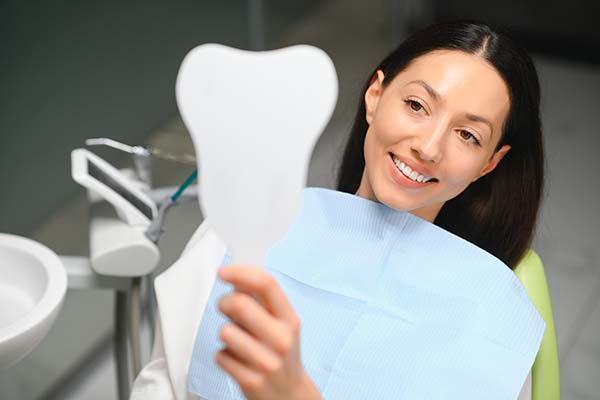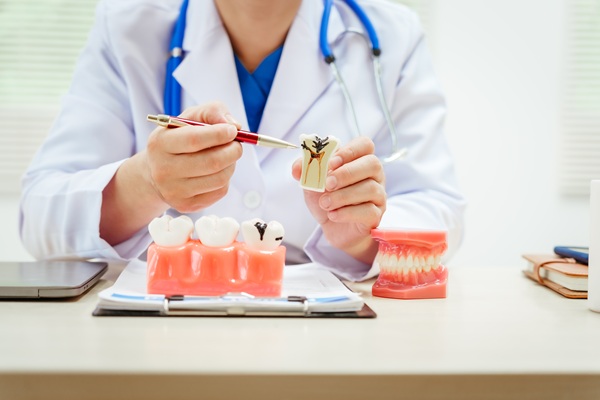Eating and Speaking With Dental Implants

Most people want to know how dental implants will affect the way they eat and speak. Many individuals would like to know if they would still chew comfortably after getting implants. Some dental implant patients worry that the implants could impact their daily living. If you want to know how eating and speaking would be like with dental implants, here are the details.
Eating with dental implants
An individual can eat right away after getting dental implants. Being mindful of the swelling and tenderness of the surgical area is important. This will persist for a few days after the procedure. Choosing to have liquids and soft foods will be ideal once the patient goes home. This will prevent the patient from chewing and stimulating the surgical site. Sticking to this diet is important for one to two days.
Eating a balanced diet is still possible with soft and liquid foods. Avoiding sugary treats, such as ice cream, is also important. Soup, shakes, fruit juices, flavored water, and broths are only some ideas. Mashed potatoes, flaky fish, and applesauce are also good sources of nutrients.
The patient must also learn to avoid irritants in the form of foods. The swelling and tenderness of the gums will worsen with these edibles. Staying away from acidic, hot, and spicy foods will keep the gums stable. Avoiding sticky and crunchy foods will prevent tissue trauma and implant loosening.
Healing will continue in the following weeks. By this time, the patient will start bringing in more foods back into the patient’s diet. The choices will include proteins, dairy, carbohydrates, and healthy fats. These are solid foods that do not need much chewing. Eggs and sweet potatoes can be part of the diet. Avoiding spicy, sour, and sticky foods is still important.
Eating the usual foods before getting dental implants is possible. This is when the implants have healed fully. The placement of the dental crown is a sign of returning to the patient’s normal diet. By this time, the patient will not have dietary restrictions anymore.
Speaking with dental implants
Adaptation is the keyword in learning to speak with dental implants. Part of this is to practice as much as possible. The more the patient speaks with the restorations, the more it will become organic. Hard work and patience are all the patient needs during this time.
Practicing speaking with dental implants will not be easy at first. Talking exercises can help the patient use the implants into speaking each word or sentence. The speech exercises also train the tongue to adjust to the changes in the patient’s bite. The normal speech patterns will reappear over time.
The tongue will learn how to maneuver through the new shape of the bite. The primary goal is to make the speech patterns natural. That way, the patient can speak well enough without worrying about how the words sound. The average time to reach this goal is 21 days after surgery.
Learning how to eat and speak with dental implants will take time and effort
Practice and patience are important aspects of learning how to adapt to dental implants. These restorations are foreign bodies. It is natural for your body to feel a little strange at first. In the end, the body will accept the implants. Your dentist can guide you through the techniques you need in eating and speaking with your implants.
Are you considering getting dental implants in the Tomball area? Get more information at https://www.drbohan.com.
Check out what others are saying about our dental services on Yelp: Dental Implants in Tomball, TX.
Recent Posts
When it comes to restoring lost teeth, a dental implant is the most natural and durable option available. However, you might find yourself wondering if it is the best option for you. If you have gaps in your smile due to tooth loss, want to get a dental bridge but do not want to harm…
Gum disease, if left untreated, often results in tooth loss, leaving many patients to wonder if they can get dental implants. Even gum disease patients who do not develop the advanced form of the disease, known as periodontitis, may want to replace missing or decayed teeth with implants. Is this possible, or will unhealthy gums…
For those who severely damage or lose a permanent tooth, dental implants can restore the appearance and function of a healthy smile. This option produces a durable and more natural-looking replacement than other alternatives, such as crowns or bridges. While the treatment process can be lengthy, most patients find they can return to a normal…
For many people, dental implants are life-changing, as they drastically improve the appearance of the smile and increase overall comfort and function. That said, the process of installing implants is invasive, requiring several surgeries. As with any surgery, proper care post-implantation is key to preventing infection and ensuring the procedure’s success.Any area of the body…


